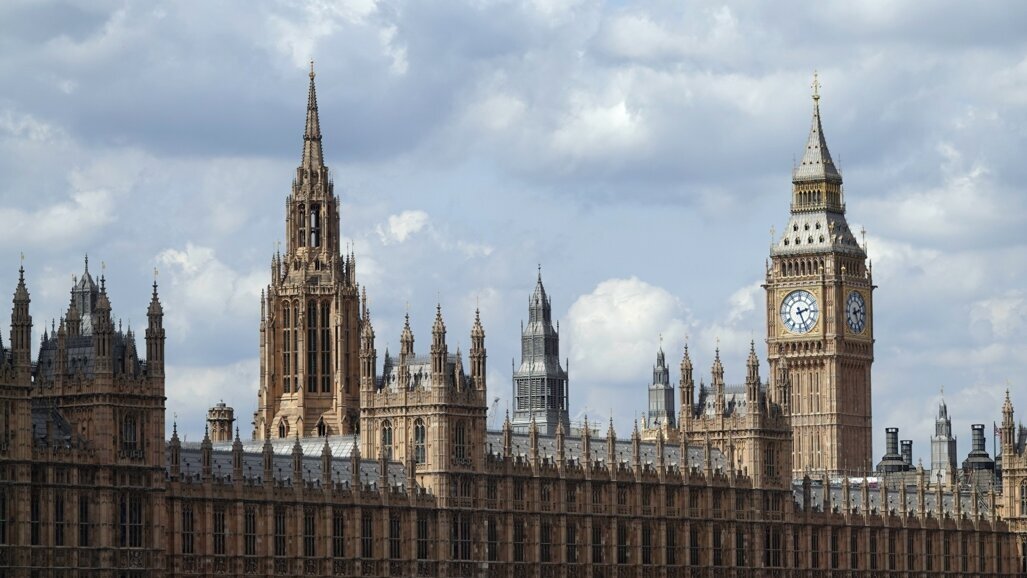LONDON, England: The current state of public health dentistry in the UK is, without question, lamentable. Plagued by financial, personnel and regulatory issues, the country’s dental system has, first and foremost, failed its people, who are not only deeply dissatisfied but whose oral health is steadily deteriorating. Since coming to power in July 2024, the current UK government has proposed a raft of measures designed to stem this ongoing public health crisis. Recently, yet another suite of proposals has been advanced, though the concrete benefits for members of the public remain largely theoretical.
The unstable state of the UK dental system has been documented exhaustively, and recent data from the British Dental Association shows that one in four British adults, roughly 13 million individuals, have unmet National Health Service (NHS) dentistry needs, a truly staggering figure. In yet another rhetorical effort to quell the worsening crisis, on 8 July, the UK government announced several initiatives to rework the existing NHS dental contract, create new dental appointments and secure the long-term commitment of skilled personnel.
At present, it is often not financially worthwhile for dentists to treat patients who require more complex procedures like crowns or dentures. The government now aims to reform these ineffective aspects of the system by offering stronger incentives to dentists. Part of the proposed dental contract reform includes introducing a new treatment pathway for patients suffering from advanced periodontal disease or those with dental caries affecting at least five teeth. Additional funding will also be made available for adjustments to dentures, and dentists will be required to provide a set amount of urgent and unscheduled care annually.
Following from government data showing that 22.4% of 5-year-old schoolchildren in England had experience of obvious caries, the government plans to implement stronger preventive measures. These include wider use of tooth sealants for children with a history of caries and the ability to apply fluoride varnish without needing a full dental examination.
In terms of personnel retention, which is an ongoing challenge within the NHS system, the government’s Fit for the Future: 10 Year Health Plan for England, released in early July, sets out measures to improve dental access for all. This includes a requirement for newly qualified dentists to practise in the NHS for a minimum period, intended to be three years. Another lynchpin in the government’s strategy is the proposed creation of 700,000 dental appointments, which would significantly ease waiting times and provide dental care for many UK citizens with serious dental needs.
Speaking on the new governmental proposals in a press release, Minister of State for Care Stephen Kinnock said: “These reforms will bring common sense into the system again, attracting more NHS dentists, treating those with the greatest need first and changing the system to make it work. This is essential to our plan for change—building an NHS fit for the future and making sure poor oral health doesn’t hold people back from getting into work and staying healthy.” As with all other governmental proposals of this nature, the key will be to track the trajectory of such statements and to determine the extent to which they either gradually dissolve into the political ether or generate tangible benefits for UK citizens in need.
Topics:
Tags:
LONDON, UK: A green paper published by the UK government has outlined an ambitious plan for the UK to be “smoke-free” by 2030. The goal is part of a ...
LONDON, England: A proposed dental voucher scheme has reignited debate over the future of National Health Service (NHS) dentistry in England. The idea, set ...
LEEDS, England: As a crucial dimension of the overall oral health crisis continuing to rankle across the UK, children’s access to NHS dental care and ...
LONDON, England: The UK dental crisis is a highly significant public health issue, having escalated in recent years owing to continued reductions in ...
LEEDS, England: While antibiotics remain essential for treating infectious diseases, their global efficacy is declining owing to the rise of antimicrobial ...
LONDON, UK: In last month’s UK general election, the Conservative Party recorded a resounding victory, securing 365 seats to achieve an outright majority ...
LONDON, UK: Two years after the British government published part one of their plan of action to combat childhood obesity, part two has been published. The ...
EDINBURGH, UK: Currently, NHS dental care is free at the point of use for those under 18 throughout the UK. Part of the Scottish National Party’s (SNP) ...
SHEFFIELD, UK: For sufferers of dental anxiety, the fear of dental procedures and check-ups can often lead to neglect of oral care, poorer dental health, ...
LONDON, UK: After its recent landslide victory in the UK general election held on 4 July, the new Labour government has placed dentistry high on its list of...
Live webinar
Tue. 3 March 2026
4:00 pm UTC (London)
Dr. Omar Lugo Cirujano Maxilofacial
Live webinar
Wed. 4 March 2026
1:00 am UTC (London)
Dr. Vasiliki Maseli DDS, MS, EdM
Live webinar
Wed. 4 March 2026
5:00 pm UTC (London)
Munther Sulieman LDS RCS (Eng) BDS (Lond) MSc PhD
Live webinar
Wed. 4 March 2026
6:00 pm UTC (London)
Live webinar
Fri. 6 March 2026
8:00 am UTC (London)
Live webinar
Tue. 10 March 2026
8:00 am UTC (London)
Assoc. Prof. Aaron Davis, Prof. Sarah Baker
Live webinar
Wed. 11 March 2026
12:00 am UTC (London)
Dr. Vasiliki Maseli DDS, MS, EdM



 Austria / Österreich
Austria / Österreich
 Bosnia and Herzegovina / Босна и Херцеговина
Bosnia and Herzegovina / Босна и Херцеговина
 Bulgaria / България
Bulgaria / България
 Croatia / Hrvatska
Croatia / Hrvatska
 Czech Republic & Slovakia / Česká republika & Slovensko
Czech Republic & Slovakia / Česká republika & Slovensko
 France / France
France / France
 Germany / Deutschland
Germany / Deutschland
 Greece / ΕΛΛΑΔΑ
Greece / ΕΛΛΑΔΑ
 Hungary / Hungary
Hungary / Hungary
 Italy / Italia
Italy / Italia
 Netherlands / Nederland
Netherlands / Nederland
 Nordic / Nordic
Nordic / Nordic
 Poland / Polska
Poland / Polska
 Portugal / Portugal
Portugal / Portugal
 Romania & Moldova / România & Moldova
Romania & Moldova / România & Moldova
 Slovenia / Slovenija
Slovenia / Slovenija
 Serbia & Montenegro / Србија и Црна Гора
Serbia & Montenegro / Србија и Црна Гора
 Spain / España
Spain / España
 Switzerland / Schweiz
Switzerland / Schweiz
 Turkey / Türkiye
Turkey / Türkiye
 UK & Ireland / UK & Ireland
UK & Ireland / UK & Ireland
 International / International
International / International
 Brazil / Brasil
Brazil / Brasil
 Canada / Canada
Canada / Canada
 Latin America / Latinoamérica
Latin America / Latinoamérica
 USA / USA
USA / USA
 China / 中国
China / 中国
 India / भारत गणराज्य
India / भारत गणराज्य
 Pakistan / Pākistān
Pakistan / Pākistān
 Vietnam / Việt Nam
Vietnam / Việt Nam
 ASEAN / ASEAN
ASEAN / ASEAN
 Israel / מְדִינַת יִשְׂרָאֵל
Israel / מְדִינַת יִשְׂרָאֵל
 Algeria, Morocco & Tunisia / الجزائر والمغرب وتونس
Algeria, Morocco & Tunisia / الجزائر والمغرب وتونس
 Middle East / Middle East
Middle East / Middle East

















































To post a reply please login or register